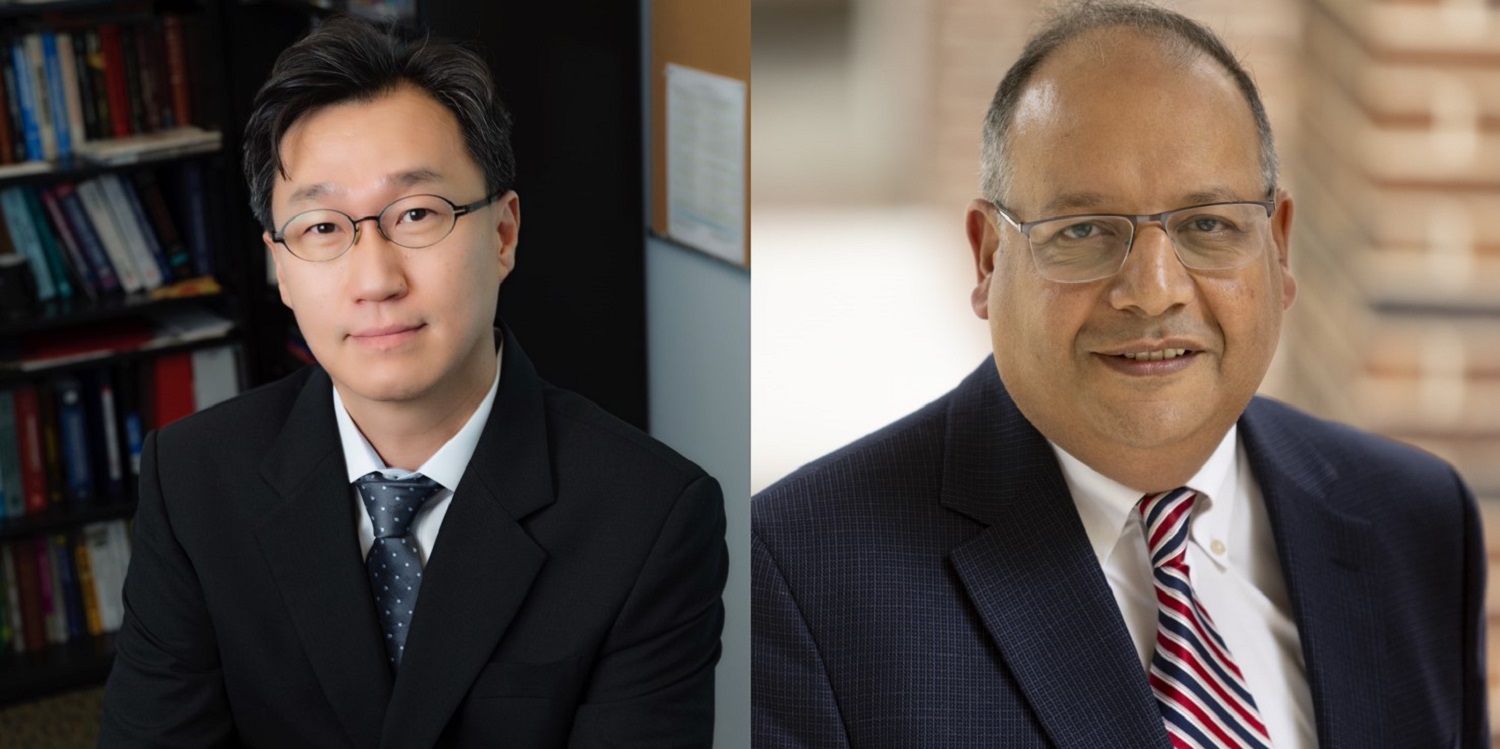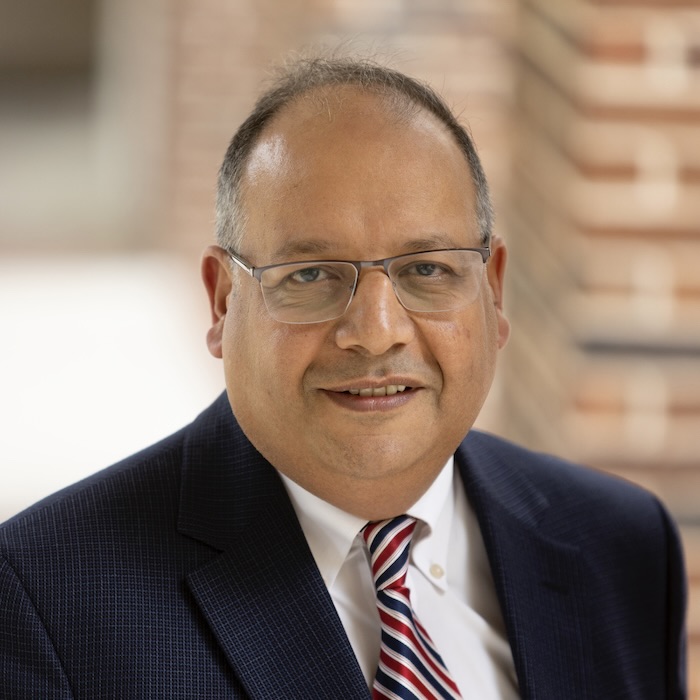SMU Lyle Awarded Research Grants for Gene Therapy and AI-Enabled Traffic System
The two grants, both more than $1 million, will allow researchers to address critical issues in gene therapy and traffic management using AI and machine learning

The SMU Lyle School of Engineering was recently awarded a R01 grant from the National Institutes of Health (NIH) for research related to gene therapy and another grant from the U.S. Department of Transportation’s Federal Highway Administration (FHWA) for AI-enabled traffic intersection detection and optimal signal control.
Dr. Minjun Kim, the Robert C. Womack Endowed Chair Professor in the Department of Mechanical Engineering, and his team have been awarded a four-year, $1.8M NIH grant in collaboration with George Alexandrakis at the University of Texas at Arlington, Dr. Steven Gray at the University of Texas Southwestern Medical Center, and Dr. Prashanta Dutta at Washington State University for single virus characterization and content analysis.
Dr. Khaled Abdelghany, a professor at the Department of Civil and Environmental Engineering and Fellow at the Stephanie and Hunter Hunt Institute for Engineering and Humanity, was awarded a three-year, $1.2 million grant in collaboration with Dr. Michael Hunter at the Georgia Institute of Technology and Dr. Mahdi Khodayar at the University of Tulsa to develop an AI-enabled framework for real-time traffic intersection detection and traffic signal optimization.
“We’re proud to share the news of these achievements that highlight the exceptional work of Dr. Kim and Dr. Abdelghany,” said Ali Beskok, Associate Dean for Research Innovation and Industry Partnerships. “This is a serious first step for NIH funding for SMU Lyle – not only for the advancement of our computations, but experimentations as well. The FHWA grant supports breakthrough research with the potential to operate safe, congestion-free, and environmentally sound transportation systems.”
—Thinking grad school? Think SMU Lyle. Apply now through Nov. 15 for Spring 2024.
Addressing critical problems in viral gene therapy
Current virus content analysis methods are unable to consistently and accurately determine if viruses intended for gene therapy contain their full genetic cargo or not. As a result, under- or over-dosing remains a critical problem in viral gene therapy.
To address this important need in the field of gene therapy, Dr. Kim and his team will develop an automated capture-recapture protocol with solid-state nanopores and new plasmonic nanopore technologies integrated with machine learning to determine if adeno-associated viruses are empty or filled and, if filled, to determine if they contain ssDNA or dsDNA with single virus resolution.
“This project will enable my team to conduct cutting-edge research, acquiring know-how in state-of-the-art technology, including biomechanics and mechanobiology, nanophotonics, nanofabrication, machine learning, physical virology, and gene delivery systems,” Dr. Kim said.
The protocol will ultimately help determine if adeno-associated viruses are properly loaded with ssDNA or dsDNA. By achieving single virus resolution, the project promises to have a substantial impact on the field.
“We anticipate that the groundwork laid by this project will undeniably transform the way nanoscale species, such as viruses and virus-like nanoparticles, are analyzed for cargo content,” Dr. Kim said.
Improving traffic safety with AI

Traffic intersections are key to highway safety and efficiency. Dr. Abdelghany and his team will develop an integrated AI framework for real-time intersection detection using computer vision technologies and reinforcement learning models for traffic signal optimization.
“Ensuring safety for all users, including pedestrians, cyclists, scooter users, and those with disabilities, is essential for equitable transportation,” Dr. Abdelghany said. “The framework’s computer vision will detect diverse user types, and reinforcement learning optimizes traffic signals for various intersection goals, such as safety, efficiency, energy conservation, emissions reduction, and equity.”
Both grants will help SMU Lyle cultivate innovation in research.
“Our culture thrives on innovation that transcends traditional boundaries, and we strongly believe in the power of externally funded, industry-supported research to drive progress,” said Dean Nader Jalili.
About the Bobby B. Lyle School of Engineering
SMU’s Lyle School of Engineering thrives on innovation that transcends traditional boundaries. We strongly believe in the power of externally funded, industry-supported research to drive progress and provide exceptional students with valuable industry insights. Our mission is to lead the way in digital transformation within engineering education, all while ensuring that every student graduates as a confident leader. Founded in 1925, SMU Lyle is one of the oldest engineering schools in the Southwest, offering undergraduate and graduate programs, including master’s and doctoral degrees.
About SMU
SMU is the nationally ranked global research university in the dynamic city of Dallas. SMU’s alumni, faculty and nearly 12,000 students in eight degree-granting schools demonstrate an entrepreneurial spirit as they lead change in their professions, community and the world.